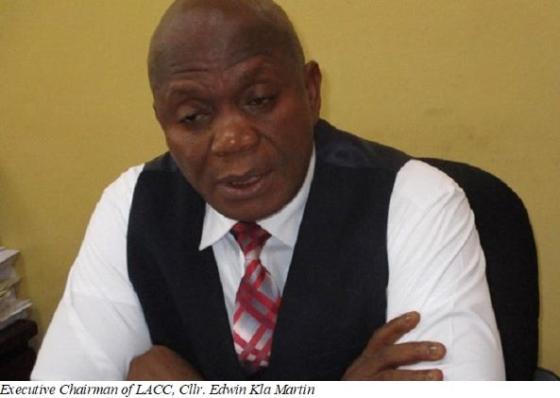Liberia: GOL Sued for Passage of Restated LACC Act

Executive Chairperson of the Liberia Anti-corruption Commission, Cllr Edwin Kla Martin: “I will challenge the new law in court. You cannot dissolve a tenured position to create another."
… The suit against the government is the latest in a long-running debate around the restated LACC act, which the LACC boss has claimed will be used to suppress the fight against corruption in Liberia.
The Executive Chairperson of the Liberia Anti-Corruption Commission (LACC), has sued the administration of President George Weah for violating his employment rights. The suit from Cllr. Edwin Kla Martin comes as the President has already signed into law the restated LACC act, which among other things dissolved the workforce of the anti-corruption watchdog including Martin's tenure position.
Martin's suit, which is a writ of prohibition, is requesting the Supreme Court of Liberia to forbid the Weah government from enforcing the LACC restated act, saying it amounts to a breach of contract as the government was in error to dissolve his tenured position, then creating the same.
He argued that Part XVI of the restated act, is discriminatory and totally against the country’s 1986 constitution and should not be allowed to stand as it would undermine strides made at LACC and others integrity institution to expose corrupt officials.
The section as quoted by Martin, mandates the Weah government to ensure that the LACC senior management team remain in office until their successors are appointed.
“All the commissioners now serving the LACC shall remain in office after the enactment of this new law until their successors are appointed, but each is eligible to apply and be subjected to the appointment procedure provided for this law,” Part XVI of the law, which focus on Transitional Provision is quotes.
His suit against the government is the latest in a long-running debate around the restated LACC act, which he claimed will be used to suppress the fight against corruption in Liberia.
Critics of the legislation claimed that it represents a broader attack on the fight against corruption in a country that is already corrupt; and would undermine the gains made by the current LACC leadership in exposing corruption in the executive.
The restatement, according to Martin, is a dangerous escalation made to silence him for coming down hard on public officials involved in corruption.
And Martin’s lawyer, Cllr. Johnny Momoh, while petitioning the Court, also claimed that section 16.1 and 16.2 of the restated LACC Act, was not in conformity with the principles and doctrine of expo facto law as enshrined in Article 21 of the constitution.
“The restated LACC act contains provisions that are not applicable, and if allowed to hold it would be a gross violation of the principle and doctrine of the expo facto law as enshrined in Article 21 of the 1986 Constitution,” Cllr. Momoh said, praying the Court to grant the alternative writ of prohibition as provided by Chapter 16, Section 16.21 of the Civil Procedure Law of Liberia.
“The law states that no person shall be made subject to any law or punishment which was not in the effect at the time of commission of an offense, nor shall the Legislature enact any bill of attainder or ex post facto law,” Momoh said. “The new act seeking the immediate removal of the LACC chairman and other commissioners is illegal, and therefore, the Justice In Chamber is asked to grant this petition to undo the Liberia decision.
The legislature’s decision to wholly restate the LACC act of 2008 came after Weah had requested in 2021 that the legislature adopt a ‘minor adjustment’ to the act to give the commission direct power to prosecute.
The lawmakers however chose restatement over amendment, passing a law that critics says unjustifiably limits the Commission's capacity to connect with the public and provide updates on the progress of investigations, which is more than required for openness, accountability, and other relevant reasons that best serve the public interest.
Meanwhile, the Supreme Court Justice in the Chamber might issue a ruling on the Martins writ.
